By Hameedah Oladimeji
Gbugbu community in Edu Local Government Area of Kwara state is blessed with water, yet it cannot boast of potable water supply for residents as water remains a scarce commodity.
The community has raised alarm over lack of safe drinking water, despite a whopping N47million spent on the Gbugbu water project by the federal government.
The water project, which is meant to serve the whole community and improve their welfare has neither benefited them nor solved any water related problem since the water works project was executed. This has exposed members of the community to waterborne diseases.
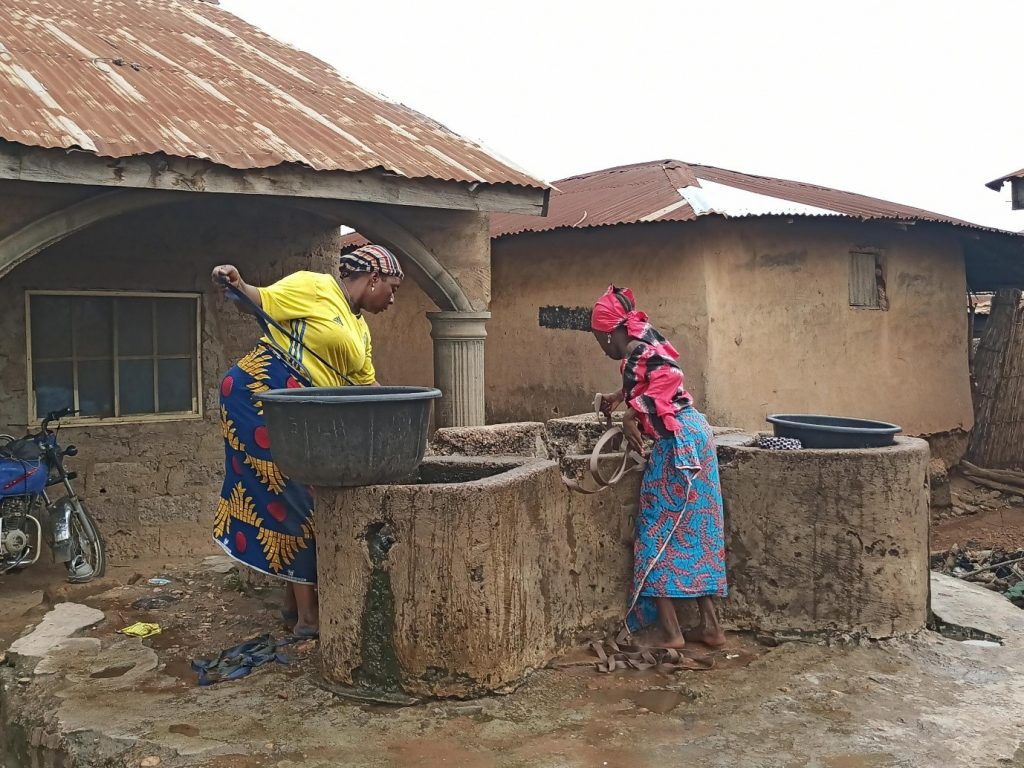
Due to inadequate water supply in Gbugbu, residents still rely on rain, wells, rivers and other unsafe sources, as only few people in the largely rural areas own boreholes.
In 2019, the immediate past senator representing Kwara North Senatorial district, Senator Shaaba Lafiagi facilitated the construction of the waterworks awarded to Needs Technologies Limited by the Lower Niger River Basin Development Authority (LNRBDA) at the sum of ₦47,348,567 ( Forty Seven million, Three Hundred and Forty Eight Thousand Five Hundred and Sixty Seven Naira) as part of his constituency project and effort in solving the water problem in Gbugbu Community.
This reporter gathered that the senator and the contractor in charge of the project personally funded the fueling of the generator to power the pumping for water supply up to the year 2020. Both, however, have stopped paying for the fueling which has made it impossible for the community to get water from the waterworks.
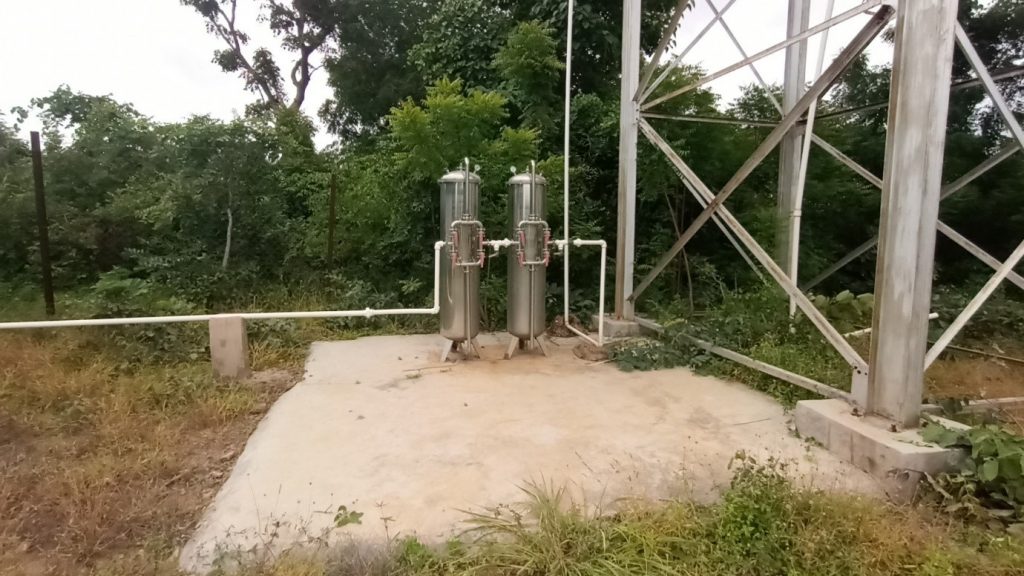
Attempts to get more information from Senator Lafiagi who facilitated the project proved abortive as he said he was too busy with election campaign activities to respond to any questions concerning the water works.
According to a 2021 report released by UNICEF, more than 1.42 billion people including 450 million children are living in areas of high or extremely high-water vulnerability. This means that 1 in 5 children worldwide do not have enough water to meet their everyday needs.
The figures in Nigeria are particularly worrying, with 26.5million Nigerian children experiencing high or extremely high-water vulnerability.
The report also identified areas where physical water scarcity risks overlap with poor water service levels. Communities living in these areas depend on surface water, unhygienic sources of water or water that can take more than 30 minutes to collect.
According to the UNICEF Representative in Nigeria, Peter Hawkins, “the world’s water crisis is not coming – it is here, and children are its biggest victims”.
“When wells dry up, children are the ones missing school to fetch water. When droughts diminish food supplies, children suffer from malnutrition and stunting. When floods hit, children fall ill from waterborne illnesses. And when water is not available in Nigerian communities, children cannot wash their hands to fight off diseases,” said Hawkins.
The UNICEF data shows that children in more than 80 countries live in areas with high or extremely high-water vulnerability. Eastern and Southern Africa have the highest population of children living in such areas, with more than half of them (58 per cent) having little or no access to water.
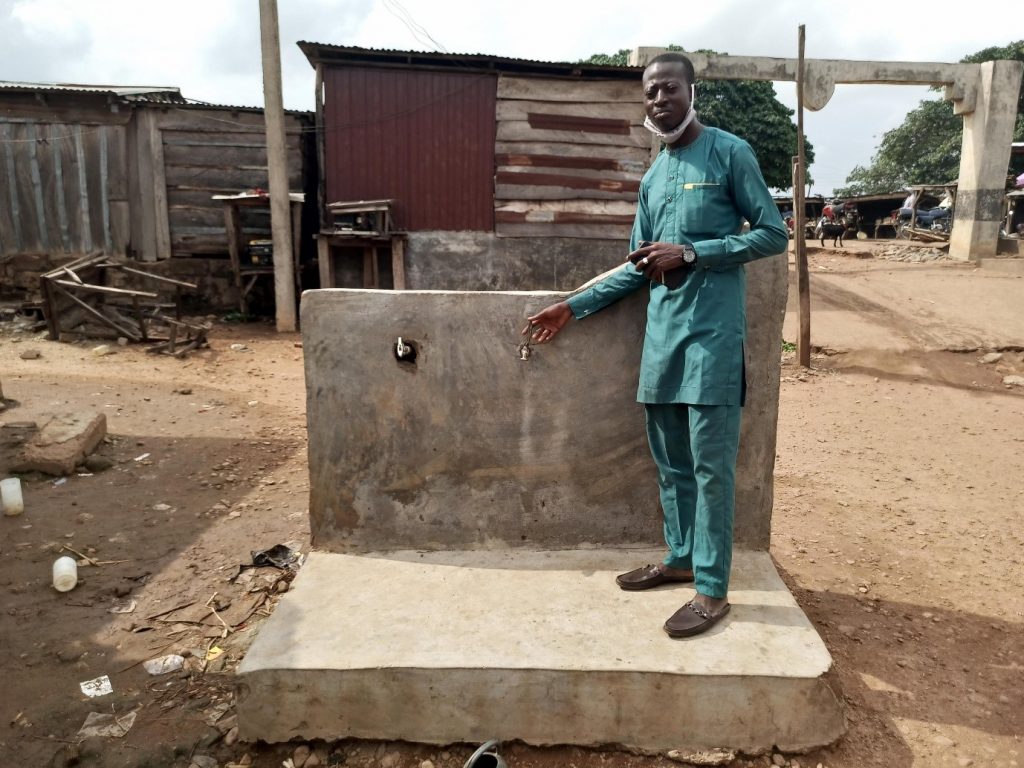
It is followed by West and Central Africa (31 per cent), South Asia (25 per cent) and the Middle East (23 per cent). South Asia is home to the largest number of children living in areas of high or extremely high-water vulnerability – more than 155 million children.
Community Seeks Government’s Help
Indigenes and residents of Gbugbu community in Edu local government area of Kwara state have appealed to the Kwara state government to come to their aid by ensuring that the newly constructed waterworks in the community serves its purpose.
According to the community head, Alhaji Ztsu Salihu, he said when the project was initiated in 2018, the community was happy and expectant that the problem of potable water supply affecting the community would be a thing of the past. However, the project has become a source of sorrow for the community in need of water as the project has not in any way alleviated their suffering.
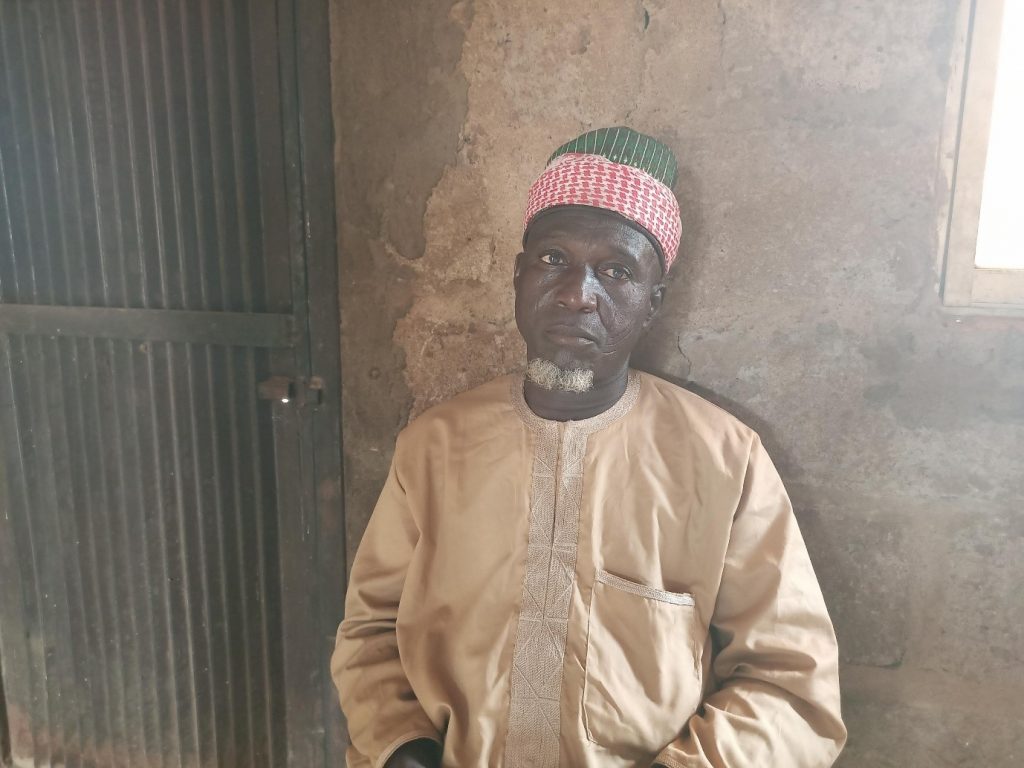
Lamenting, he said since the project was said to have been completed in 2021 by the contractor, the community got water from the waterworks’ pipe only once.
“The day water was pumped, after an hour the pipe conveying the water got broken due to the pressure of the water and when we approached the contractor and complained that the pipe was small compared to the volume of water coming through it, the contractor said the pipe was what was in the contract papers.
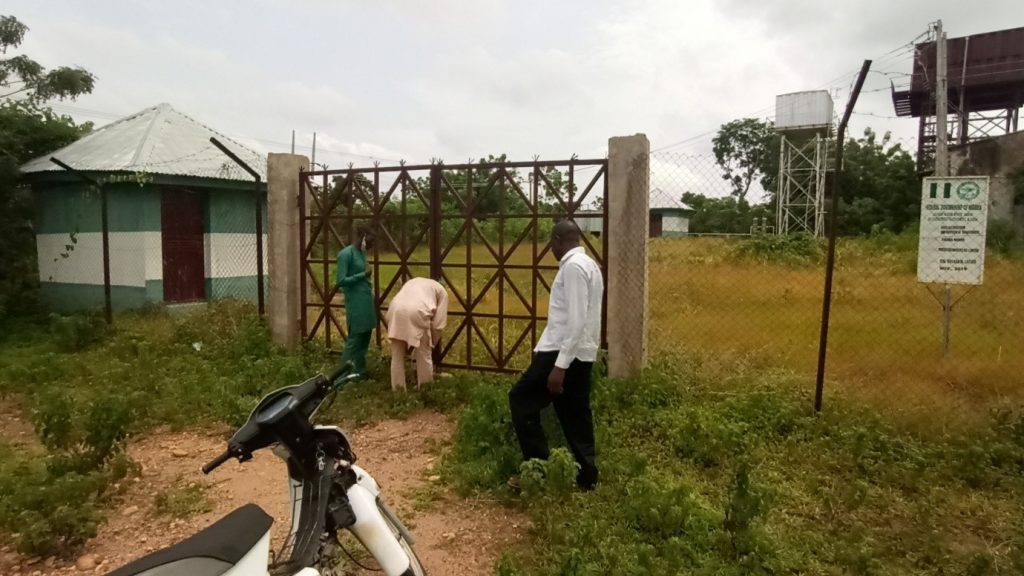
“Our wives make use of well water during the rainy season, but in the dry season they trek up to 3-5km in search of water to take care of the family,” he said.
He appealed to the government to come to the aid of Gbugbu community to solve its water problem and not allow the huge investment on the water works to waste away.
Also speaking, the Gbugbu Youths President, Alhaji Muhammed Mada, expressed sadness that the waterworks which the community believes will help solve its perennial water problem was not serving the community.
“The youths were involved in the construction of this project from start to finish, by monitoring and helping the contractors because we were all happy about the project.
“The day water was first pumped we were overjoyed, but after 30 minutes of pumping, the pipe supplying the water to town bursted and that was the first and only time water was pumped form the water works.
“We depend on water vendors to get water for us and also tankers from Lafiagi and share which majority of the residents of the community can’t afford, thereby forcing them to rely on stream water which is not hygienic,” he said.
For Hajia Shehu Fatima Teni, a woman leader in the community who also owns a shop where she sells local delicacies, most of the time she buys water from mai ruwa (water vendors) who fetch from a river to prepare her food in the heart of Gbugbu community.
The Lafiagi junction area of the town where she runs her business like most places in the community has faced acute water scarcity for years.
Teni said she was always concerned about using such water to cook food for her customers, but she does not have a choice if she must continue her business to feed her family.
“We don’t always have clean water to prepare food because the water is mostly gotten from rivers; we use alum to purify the water before we use for cooking but some health workers who visited our town some time ago cautioned that the water is not good for cooking.
“We don’t have a choice because the water works we have in this town is not working and I heard the contractor said they will do something about it.
“We use dirty water for cooking food, which is not good. I want the governor of Kwara state to intervene in our plight, we need clean water in this community,” she said.
Another resident, Emmanuel Obeta from Enugu state who is a farmer and a businessman residing in Gbugbu, said he does not have access to either borehole or public water, both at home and at his shop.
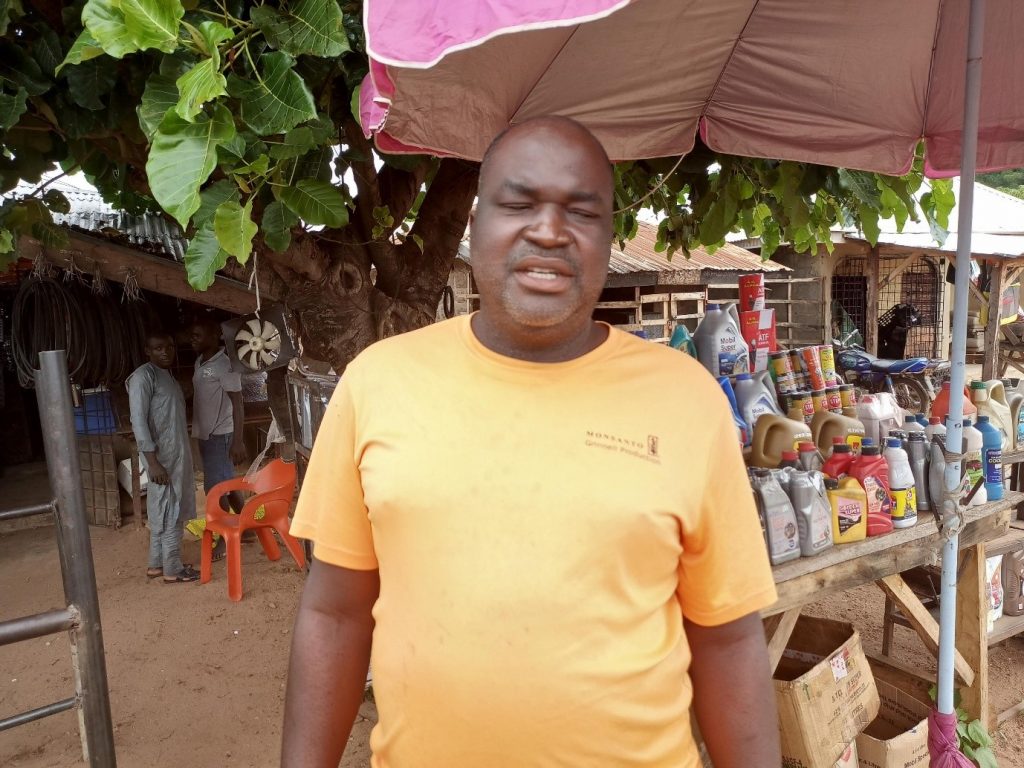
Like other people in the community, he gets water for his household use from a neighbouring community by putting jerry cans in his car three times a week or sometimes patronise water vendors.
Mrs Adebayo, another resident and a shopkeeper in Gbugbu complained bitterly about the non availability of water in the community.
“We learnt about the waterworks and the absence of pipes to run it into town. We hope the government can look into this issue and save the community from water borne disease.
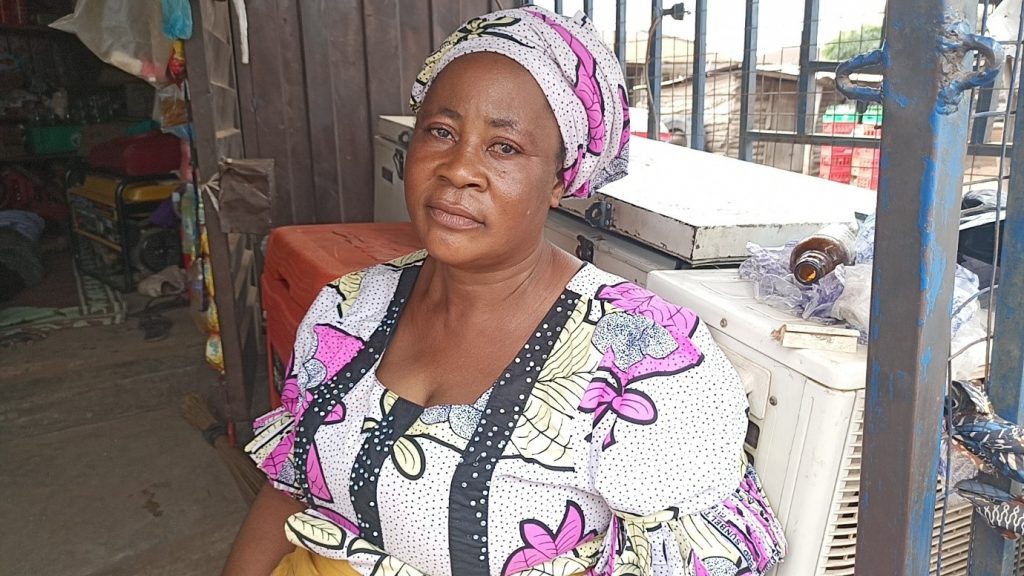
Adebayo, an indigene of Agboro, a Yoruba speaking community in Nupe dominated Patigi local government area of the state who sells ice blocks revealed that she gets water from either a hotel, school or mosque located around the main market. There are boreholes and well water in those places from which people of the area sometimes get water.
Adebayo, however, called on the government to come to their aid and solve the water problem facing the community.
Alhaji Mohammed Tsowa, a 69-year-old father of twelve, said like others, he gets water from the well in his house for drinking and cooking but also gets water from the stream for other uses, because other people fetch from the well as well which makes it dry up quickly.
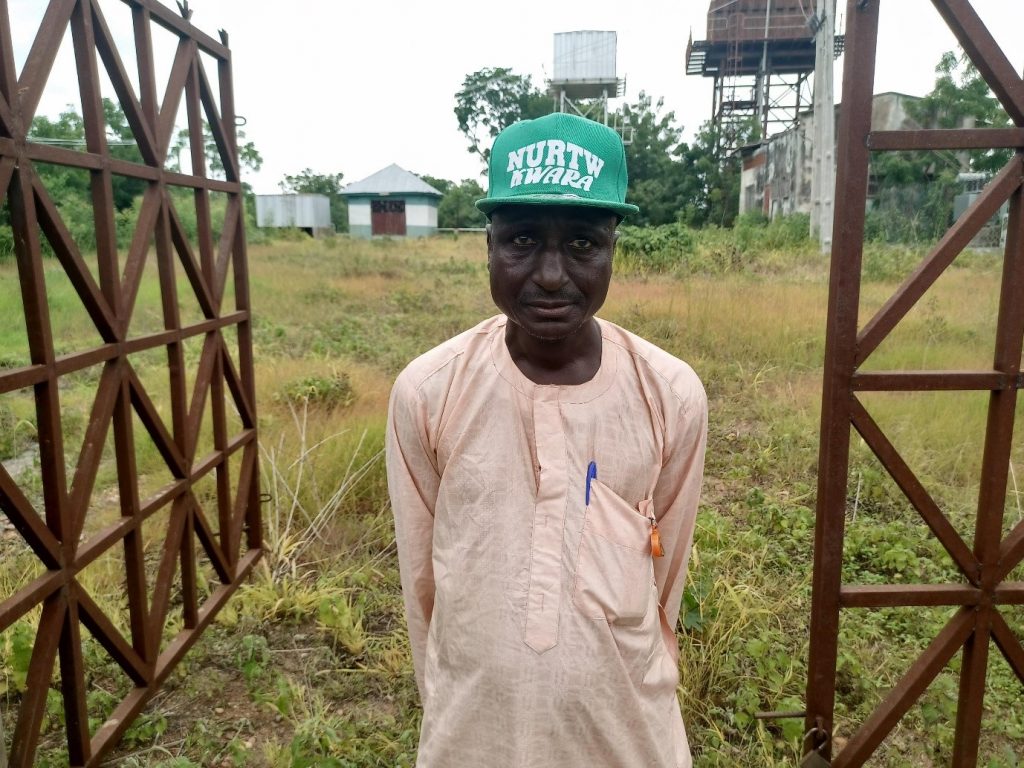
“We don’t have access to pipe-borne water. There is no water in our well now because our neighbours fetched everything this morning. Hopefully if it rains, more water will be there. I want to use the pipe-borne water constructed by the government; I will be happy to see the water in my house one day, no matter how much it costs because it will be better. I am appealing to the government to do something about it”, he said.
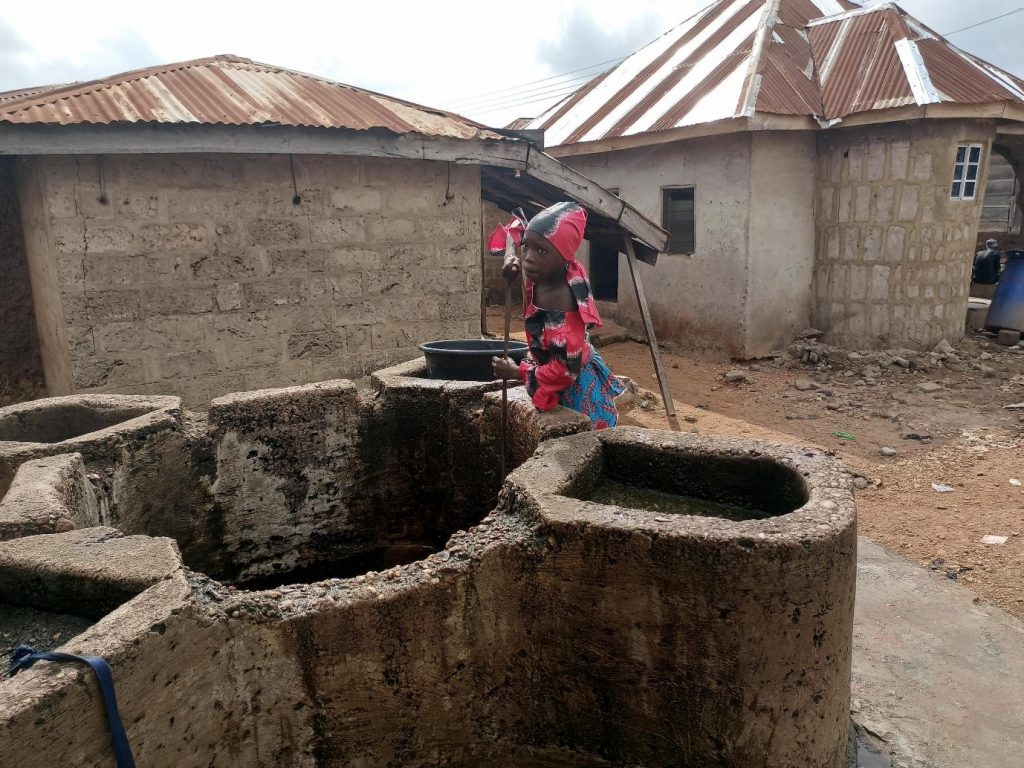
ENetSuD Blames Waterworks Project Failure on Poor Maintenance By State Government
In an interview with this reporter, the coordinator of Elites Network for Sustainable Development (ENetSuD), Dr Abdul Lateef Alagbonsi, said the contractor had completed and handed over the project.
He said the community complained about the diameter of the pipes used. He, however, pointed out that, the pipes may not have been properly buried in the ground which might be the reason for the pipes always bursting.
Alagbonsi noted that there is usually a maintenance issue with federal government projects which is why state governments need to take over projects after execution by the federal government, adding that the state government is expected to post staff from the ministry of water resources to supervise the project and ensure it was properly managed.
Speaking further, he said: “The main problem is operation and maintenance. When the project was abandoned just few years after it was completed, we spoke with former Senator Lafiagi who financed the repairs. But there was no ministry staff to maintain the project which is why it has failed to work”.
“We wrote to the governor about the project and pleaded that the state government takes charge of the operation and maintenance for the benefit of the general public”.
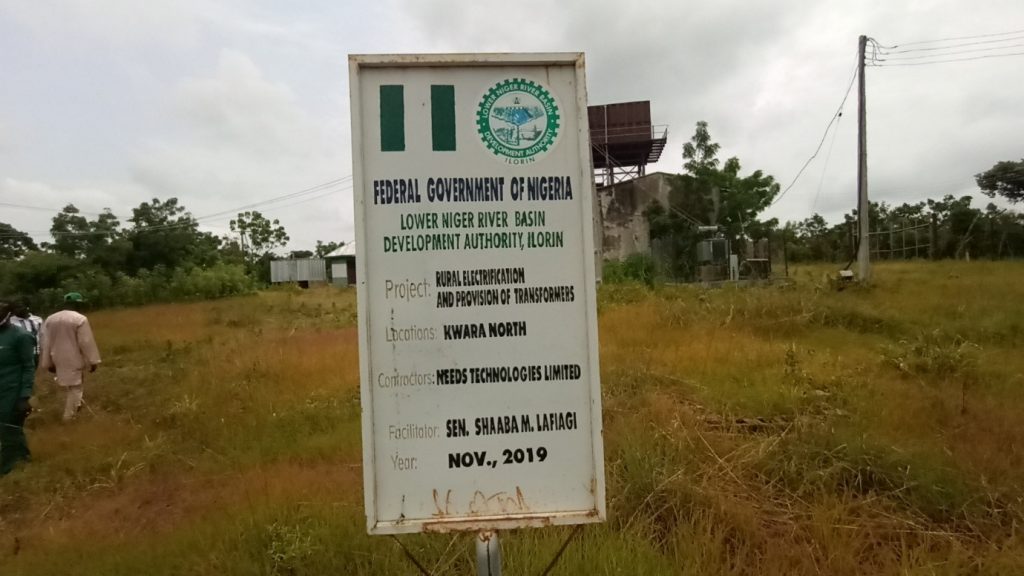
“If the local government was working in the state, they would have employed one or two persons to maintain the project”.
When this reporter spoke with the management of the Lower Niger River Basin Development Authority (LNRBDA), the contractor who handled the project, the managing director, Dr Saheed Aremu in his reaction to the use of substandard materials for the project especially pipes, he said the materials used were in line with the specifications of the contract.
“The pipes we used were the ones recommended by our engineers who supervised the project and in line with the Bill of Quantity and Evaluation of the contract. We did our job and it was certified okay before we handed it over to the community.
“Why it had not been put to use is a question I cannot answer. Although, I learnt that in 2020, the immediate past senator representing Kwara North, Alhaji Shaaba Lafiagi provided some money for fuelling and as well as some maintenance”, he said.
He advised that when carrying out such project, it is expected that the state government would deploy staff of the ministry of water resources for operation and maintenance in order for such project to serve the purpose for which it was constructed.
However, attempts to get the Kwara State Government’s reaction on the issue proved abortive as efforts to reach the acting General Manager, Kwara State Water Corporation, Engineer Shehu Umar via his mobile phone proved abortive as his line was not going through as at the time of filing this report.
Also, the Commissioner for Water Resources, Alhaji Abdulwahab Femi Agbaje stopped picking his calls after promising to speak at a later time due to his busy schedule.
- This report is supported by the John D. and Catherine T. MacArthur Foundation and the International Centre for Investigative Reporting, ICIR.

